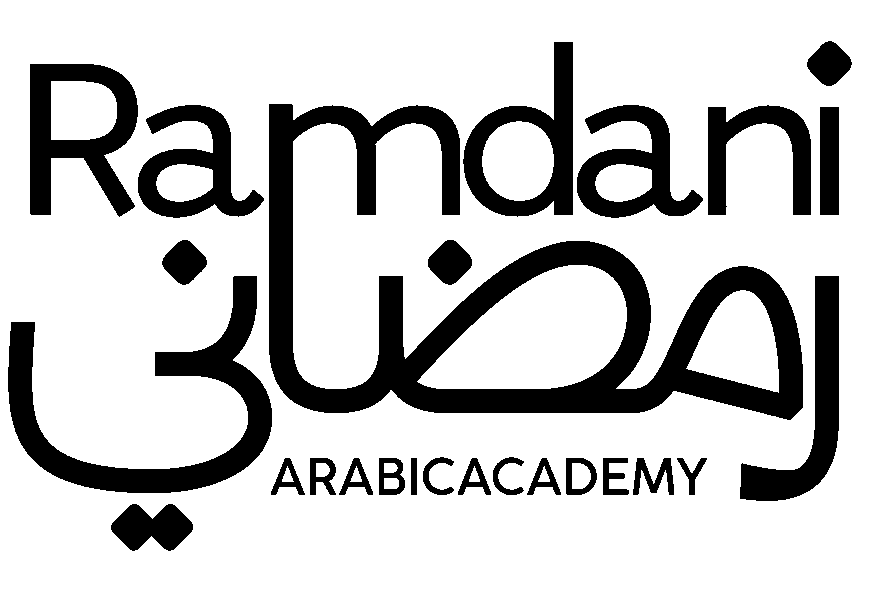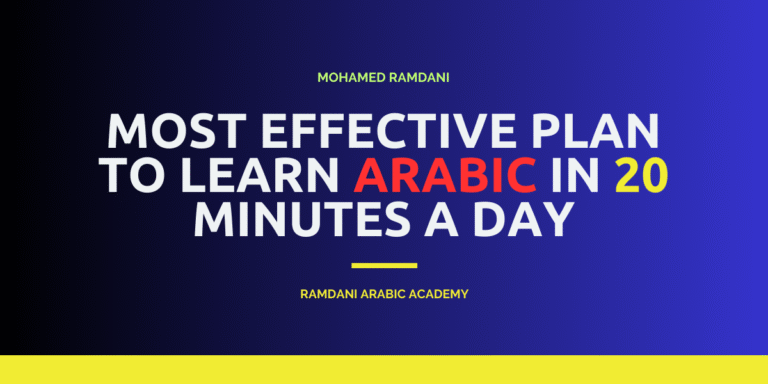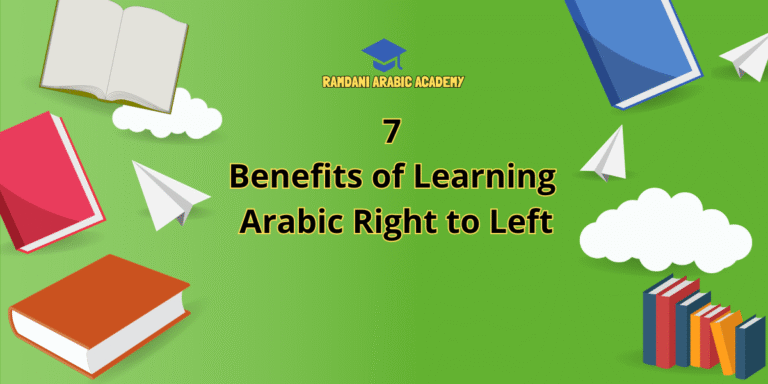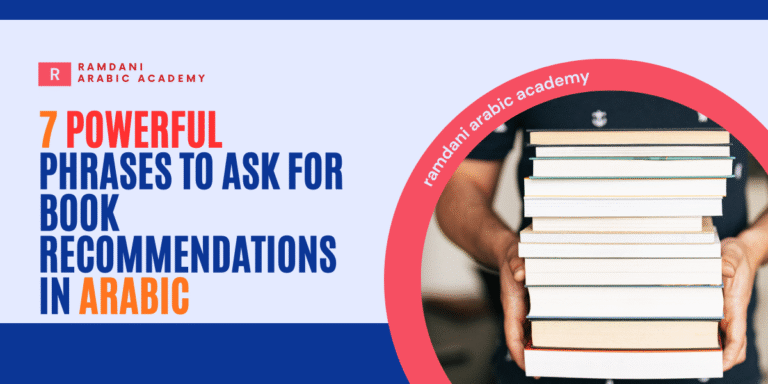7 Ways to Make Your Ramadan Truly Meaningful
Ramadan is more than a period of fasting; it is a time for reflection, growth, and spiritual renewal. For Muslims around the world, it marks a month of deep devotion, when the soul, mind, and body are all focused on strengthening the connection with Allah. Each day during Ramadan provides an opportunity to step back from the routine of life and engage in actions that nourish faith, character, and community.
Fasting from dawn to sunset is the most visible practice of Ramadan, yet the month is not just about abstaining from food and drink. It is about cultivating self-discipline, empathy, and gratitude. The hunger and thirst experienced during the day serve as reminders of the blessings many take for granted, encouraging generosity toward those in need. It is a time when Muslims are called to engage more actively in prayer, reflection, and acts of kindness.
The nights of Ramadan carry their own unique significance. The Taraweeh prayers, performed after the obligatory Isha prayer, offer a chance to engage deeply with the Quran, listen to its recitation, and contemplate its meanings. Many Muslims also dedicate time for personal study, journaling, or learning new aspects of Islamic teachings. The spiritual atmosphere of Ramadan encourages breaking away from distractions and dedicating time to improve one’s relationship with Allah and with others.
Ramadan also strengthens the sense of community. Families and friends gather for Suhoor and Iftar meals, sharing the joy of breaking the fast together. It is a time when neighbors and communities reach out to support each other, whether through charity, shared meals, or acts of service. The emphasis on empathy and generosity during this month reminds Muslims of their duty to contribute positively to the world around them.
For learners of Arabic, Ramadan provides a unique opportunity to engage with the language in meaningful ways. Listening to Quranic recitation, reading Islamic texts, and communicating with family or community members in Arabic can enhance both language skills and cultural understanding. It is a chance to experience Arabic not just as a language but as a living medium connecting faith, culture, and daily life.
In this article, we will explore practical and meaningful things to do during Ramadan. From spiritual practices to acts of kindness and ways to improve your understanding of Arabic, these suggestions aim to help Muslims make the most of this sacred month. Whether you are observing Ramadan for the first time or looking to deepen your experience, these tips can guide you toward a more focused, rewarding, and fulfilling month.
Ramdani Arabic Academy, founded to help Arabic learners around the world, encourages everyone to use this time to grow spiritually and intellectually. Through dedicated practice and thoughtful engagement, Ramadan can become a transformative experience that extends beyond fasting, enriching your faith, knowledge, and connection with the community.
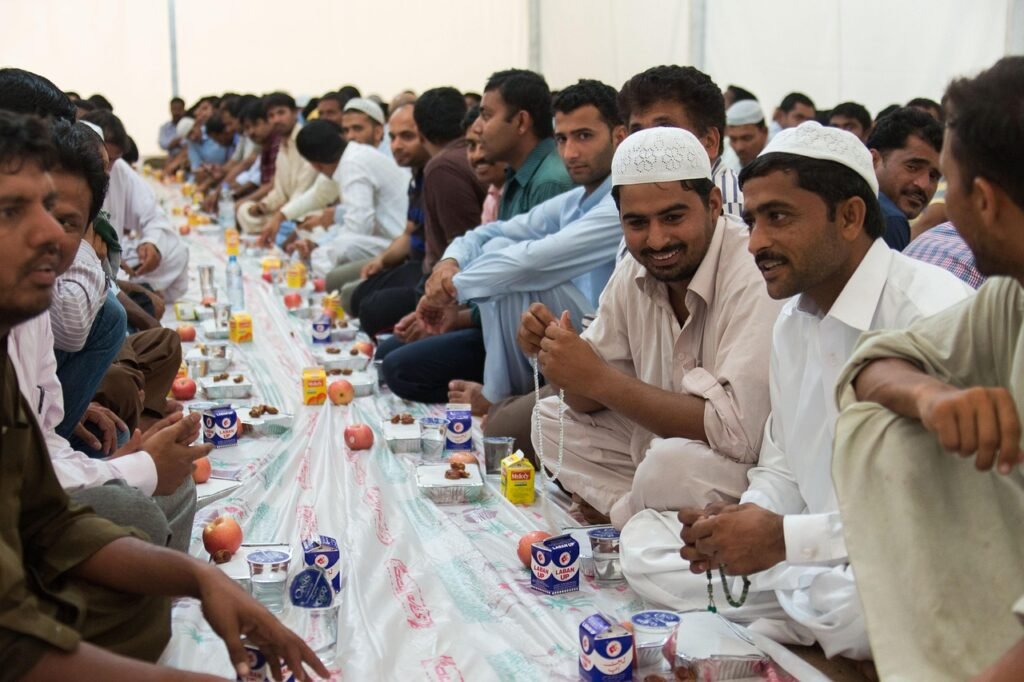
Spiritual Practices in Ramadan
Ramadan is first and foremost a time for spiritual growth. The month provides a structured framework to strengthen your connection with Allah and reflect on your personal faith. While fasting is the most recognized practice, there are several other spiritual actions that can deepen your experience.
1. Performing Daily Prayers with Focus
The five daily prayers are the foundation of a Muslim’s spiritual life, and during Ramadan, they take on even greater significance. Instead of going through the motions, focus on mindfulness and sincerity. Each prayer becomes an opportunity to pause, reflect, and reconnect with your purpose. Try to eliminate distractions during prayer, whether it is your phone or background noise. Even a few moments of conscious devotion can make a noticeable difference in your spiritual state.
2. Taraweeh and Night Prayers
Taraweeh prayers are performed every night during Ramadan after Isha. They are longer than regular prayers and often involve recitation of the Quran. Participating in Taraweeh, whether at home or in the mosque, helps you engage with the Quran regularly. Even if you cannot complete long chapters, focus on understanding the verses you recite. Over time, this practice will enhance your spiritual awareness and provide a sense of peace and discipline.
Some Muslims also dedicate part of the night to Qiyam al-Layl—extra voluntary prayers. These are highly recommended and carry great spiritual reward. Even a short prayer before dawn can help strengthen your faith and create a routine of reflection beyond Ramadan.
3. Reciting and Reflecting on the Quran
Ramadan is the month of the Quran, and reading it regularly is a key spiritual activity. Instead of rushing through the pages, focus on understanding the meaning of the verses. Take notes on reflections or questions that arise during reading. Learning the context behind the verses will help you apply them to your daily life.
If Arabic is not your first language, you can combine recitation with translation. Listening to the Quran in Arabic while reading its meaning in your language can improve both your spiritual and language skills. This approach allows you to connect with the text on multiple levels, deepening both comprehension and devotion.
4. Dhikr and Supplication
Dhikr, the remembrance of Allah, is a simple yet powerful spiritual practice. Short phrases like “SubhanAllah” (Glory be to Allah) or “Alhamdulillah” (All praise be to Allah) can be repeated throughout the day. Incorporating Dhikr into everyday activities—walking, commuting, or even cooking—keeps your mind focused on faith.
Supplication (dua) is equally important. Ramadan is a time when prayers are more likely to be answered, especially during the last ten nights. Take time to make sincere dua for yourself, your family, and the community. Be specific in your requests, and approach each supplication with humility and focus.
5. Fasting Beyond Food
Fasting in Ramadan extends beyond refraining from food and drink. It is also about controlling negative behavior. Avoid anger, gossip, or harmful speech, and instead practice patience, kindness, and honesty. Each challenge you face becomes an opportunity to strengthen self-control and moral character.
6. Charity and Acts of Kindness
Charitable acts carry immense spiritual reward during Ramadan. This includes financial contributions, helping neighbors, or simply offering support and kindness. Engaging in charity not only benefits others but also purifies your heart and strengthens your connection with Allah. Even small daily actions, like helping someone carry groceries or offering a kind word, contribute to spiritual growth.
These spiritual practices make Ramadan more than a routine of fasting—they transform it into a period of meaningful reflection, self-discipline, and personal growth. By focusing on prayers, Quranic study, Dhikr, and acts of kindness, you create habits that can extend beyond Ramadan and positively influence your life year-round.

Educational and Personal Development Activities in Ramadan
Ramadan is not only a time for spiritual reflection but also a unique opportunity for personal growth and learning. The structure of the month encourages discipline and focus, which can be applied to educational and self-development activities. By integrating learning into your daily routine during Ramadan, you can strengthen both your mind and character while maintaining spiritual balance.
1. Learning Arabic Through Quranic and Islamic Texts
For Muslims and Arabic learners alike, Ramadan provides an ideal context to improve Arabic skills. Reading Quranic verses, Hadiths, or Islamic articles in Arabic helps reinforce vocabulary and comprehension while connecting language to faith. Start with short passages and gradually move to longer texts. Focus on understanding the meaning of words and phrases rather than just memorization.
Listening to Quran recitations and following along in Arabic can also improve pronunciation and listening skills. Many online resources, including courses offered by Ramdani Arabic Academy, provide structured lessons that integrate language learning with religious and cultural context. This approach ensures that learning Arabic during Ramadan is purposeful and meaningful.
2. Engaging in Online Courses and Educational Programs
Ramadan can be a time to explore personal interests and acquire new knowledge. Short online courses, webinars, or workshops can be incorporated into your daily routine after Iftar or before Suhoor. Choose topics that align with your goals, whether it is Islamic studies, language learning, or professional development.
Breaking down learning into manageable daily sessions prevents overwhelm and ensures consistency. Even dedicating 30 minutes a day to an educational activity can lead to significant progress by the end of the month. The key is to maintain focus and treat these sessions as part of your spiritual and personal growth.

3. Journaling and Self-Reflection
Journaling is a simple but effective tool for personal development during Ramadan. Writing about your experiences, thoughts, and goals allows you to track progress and reflect on challenges. Focus on areas like gratitude, self-discipline, and lessons learned during fasting.
You can also use journaling to plan your daily schedule for Ramadan, balancing prayer, study, and personal activities. This practice encourages mindfulness and helps you create routines that can continue beyond the holy month.
4. Reading Books and Expanding Knowledge
Ramadan is an excellent time to read books that nourish the mind and spirit. Select books on Islamic history, biographies of scholars, or guides on personal development. Even reading short articles or essays in Arabic can improve language skills and cultural understanding.
Set realistic reading goals. For example, aim to read 10–15 pages daily, focusing on comprehension rather than speed. Over the month, this consistent effort results in both spiritual and intellectual enrichment.
5. Mindful Use of Technology
Technology can be a distraction, but during Ramadan, it can also be a tool for learning and personal growth. Use apps and online platforms to access educational content, listen to lectures, or join study groups. Limit unnecessary social media use and entertainment to prioritize activities that add value to your mind and soul.
Balancing technology usage ensures that you spend time on meaningful learning rather than passive scrolling. This discipline aligns with the spirit of Ramadan, fostering intentionality in how you spend your time.
6. Setting Personal Goals
Ramadan is a time to reflect on your life and set goals for the future. Identify areas where you want to improve, such as learning Arabic, memorizing Quranic verses, or enhancing personal skills. Break these goals into achievable daily actions.
Tracking progress each day creates motivation and reinforces self-discipline. By the end of Ramadan, not only will you have strengthened your faith, but you will also have developed habits and knowledge that can benefit you year-round.
Integrating educational and personal development activities during Ramadan ensures that the month is productive in both spiritual and intellectual ways. Learning Arabic, engaging in courses, journaling, reading, and setting goals turn Ramadan into a time of comprehensive growth. These practices create a balanced approach, combining devotion, discipline, and personal improvement, which aligns with the teachings of Islam and the mission of Ramdani Arabic Academy to support learners worldwide.

Community Engagement and Charitable Activities in Ramadan
Ramadan emphasizes not only personal growth but also responsibility toward others. Engaging with your community and participating in charitable activities strengthens social bonds and allows you to live the values of empathy, generosity, and service. These actions make the month meaningful beyond fasting and prayer.
1. Supporting the Needy
Charity, or Sadaqah, carries immense reward during Ramadan. Beyond the obligatory Zakat, giving voluntarily to those in need is highly encouraged. You can support local charities, help neighbors facing difficulties, or provide food for those who cannot afford Iftar.
Small acts can have a big impact. Preparing extra food for a neighbor, donating clothes, or offering financial assistance demonstrates compassion and reinforces the communal spirit of Ramadan. Even simple gestures, like sharing knowledge or offering time to someone in need, qualify as charitable acts.
2. Organizing or Participating in Iftar Gatherings
Breaking the fast together is one of the most celebrated aspects of Ramadan. Organizing Iftar gatherings for family, friends, or community members fosters connection and unity. Sharing meals creates a sense of belonging and strengthens relationships.
If organizing a large event is difficult, smaller acts are just as valuable. Inviting someone who would otherwise eat alone, or joining a local mosque’s Iftar program, helps build community and reinforces the values of empathy and inclusiveness.
3. Volunteering
Volunteering is another practical way to give back during Ramadan. Many mosques, charities, and community organizations run programs that rely on volunteers to distribute food, teach, or provide support services.
Choose activities that match your skills and availability. For instance, teaching basic Arabic, assisting with Quran classes, or helping with community events can make a real difference. Volunteering also strengthens your personal sense of purpose and satisfaction.
4. Acts of Kindness in Daily Life
Charity is not limited to financial contributions. Simple, everyday actions can reflect generosity and compassion. Holding the door open, offering a smile, listening to someone in need, or helping a neighbor with errands are small but meaningful acts.
During Ramadan, these behaviors gain spiritual significance. Practicing patience, understanding, and humility in interactions with others enhances your character and spreads positivity in the community.
5. Educating and Sharing Knowledge
Sharing knowledge is a form of charity in Islam. Teaching others, whether in person or online, benefits both the learner and the teacher. You can share Quranic knowledge, Arabic language skills, or practical lessons from daily life.
Ramdani Arabic Academy encourages learners to use Ramadan as an opportunity to share Arabic learning with friends or family. Conducting short study sessions, reading Quran together, or explaining Arabic phrases can strengthen both understanding and community bonds.
6. Participating in Mosque Activities
Mosques often organize lectures, study circles, and community programs during Ramadan. Attending these events helps you connect with others, learn more about Islam, and contribute to a positive environment.
Even if you cannot attend in person, participating online through webinars or virtual study groups ensures engagement and allows you to benefit from collective learning.
Community engagement during Ramadan turns personal devotion into a shared experience. Supporting the needy, volunteering, participating in Iftar gatherings, practicing everyday kindness, and sharing knowledge all strengthen social bonds and reflect the spirit of the month. These actions create a balance between spiritual growth, personal development, and communal responsibility.
By actively participating in community life, you embody the values of Islam and make a meaningful impact on those around you. These experiences also complement the educational and spiritual activities discussed earlier, creating a holistic approach to Ramadan that nurtures both the soul and the society.
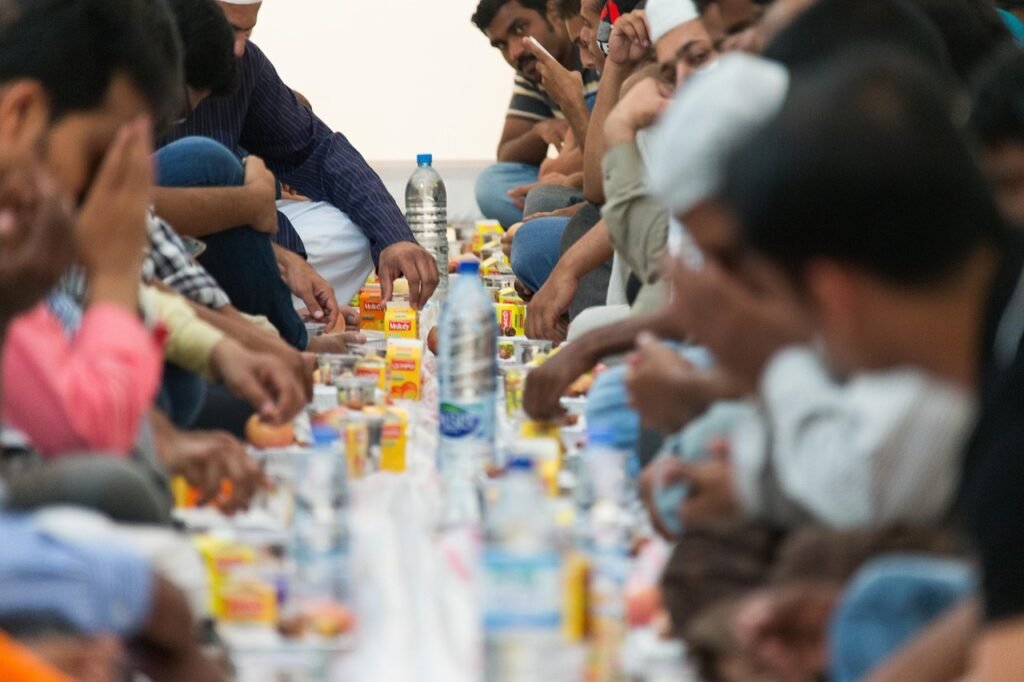
Making the Most of Ramadan
Ramadan is a unique period that combines spiritual reflection, personal growth, and community engagement. It offers an opportunity to slow down, reassess priorities, and strengthen your connection with Allah. By intentionally structuring your days around meaningful practices, you can turn this month into a transformative experience that extends beyond fasting.
Focusing on spiritual practices such as daily prayers, Taraweeh, Quran recitation, Dhikr, and supplication creates a foundation for inner peace and self-discipline. These practices are not just rituals; they are tools to cultivate mindfulness, patience, and gratitude. Incorporating them consistently ensures that you remain connected to your faith throughout Ramadan and beyond.
Alongside spirituality, personal development and learning are essential components of a balanced Ramadan. Engaging in Arabic study, reading Islamic texts, participating in online courses, journaling, and setting personal goals enrich your knowledge and strengthen your skills. Learning during Ramadan becomes more impactful because it is tied to purpose and reflection, making each study session meaningful. For Arabic learners, this is a prime opportunity to connect language skills with cultural and religious understanding.
Community engagement and charitable acts give Ramadan a broader purpose. Supporting the needy, volunteering, sharing knowledge, and participating in Iftar gatherings strengthen social bonds and reinforce empathy. Even small acts of kindness in daily life carry great significance. By contributing to your community, you embody the values of generosity, compassion, and responsibility, making the month not only spiritually fulfilling but socially meaningful.
To maximize the benefits of Ramadan:
- Plan your daily schedule to balance worship, learning, and community activities.
- Set achievable goals for personal growth and track your progress.
- Incorporate regular reflection through journaling or meditation on your actions.
- Engage with family, friends, and your community to foster stronger relationships.
- Use technology intentionally to enhance learning rather than distract from purpose.
Ramdani Arabic Academy supports learners in making Ramadan both spiritually and intellectually rewarding. Our courses, lessons, and resources are designed to help you improve Arabic, understand Islamic texts, and connect with the broader Muslim community. By combining structured learning with practical application, you can grow in faith, knowledge, and cultural understanding.
The author, Ramdani Mohamed, founded Ramdani Arabic Academy to create accessible learning opportunities for Arabic learners worldwide. Drawing from personal experience and years of dedication to Arabic education, the academy aims to guide students in both language and cultural understanding. Through thoughtful engagement, consistent practice, and reflection, students can experience Ramadan not just as a month of fasting, but as a period of meaningful growth and transformation.
Ultimately, Ramadan is a chance to invest in yourself spiritually, mentally, and socially. Each day offers new opportunities to deepen faith, improve skills, and contribute positively to your community. By approaching the month with intention, discipline, and compassion, you can emerge from Ramadan more connected, knowledgeable, and fulfilled.
